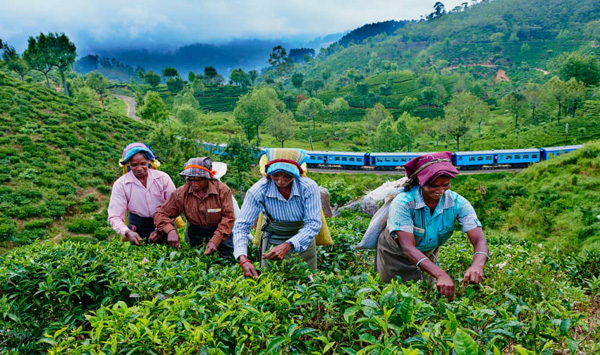
Sri Lanka’s tea industry, particularly small and medium-scale tea landholders, is facing an extremely severe crisis due to the government's proposed new VAT tax amendment.
With the proposed complete abolition of the simplified Value Added Tax (SVAT) system, buyers at the Colombo Tea Auction will be required to pay an 18 per cent VAT in cash, which will inevitably lead to an approximate 18 per cent decrease in tea prices, three associations - the Sri Lanka Tea Factory Owners' Association, the All Ceylon Small Tea Holders' Association and the Planters' Association of Ceylon -, said in a joint media statement.
Industry stakeholders warn that if this tax amendment is implemented, small and medium-scale tea leaf holders will lose between Rs. 30 and Rs. 35 per kg of green leaf while factory owners will experience a price reduction of approximately Rs. 60 per kg of finished tea. This is an extremely dangerous situation, it said.
“We emphatically state that if this new tax policy is implemented at a time of instability in the Middle East, it will be the most severe blow to the tea industry, even worse than the chemical fertiliser ban,” the statement said.
According to reports from the Sri Lanka Tea Board and the Tea Research Institute, over two million people (approximately one-tenth of the country's total population) in over 12 districts in Sri Lanka, including Ratnapura, Galle, Matara, Kalutara, Kandy, Nuwara Eliya, Matale, Badulla, Hambantota, Kegalle, Gampaha, and Colombo, directly and indirectly depend on this industry. These individuals do not pose any economic burden on the government and provide a critically important contribution by earning essential foreign exchange for the country.
Companies/tea owners are already facing numerous challenges such as rising fertiliser prices, labour shortages, and unpredictable climate changes. If this new tax burden also falls upon them at this time, it will directly impact their daily lives, making it impossible for them to provide for their children's education, healthcare, and even basic family needs. This is not merely an economic issue but a serious humanitarian tragedy.
Therefore, if this VAT tax amendment is implemented, it will be inevitable for small and medium-scale tea landholders to withdraw from the industry. Protecting this livelihood is a paramount national responsibility of the government.
The seriousness of this issue has been highlighted even at the ministerial level, including with the subject minister, where the impact on the industry was discussed in depth. Our associations further emphasise that the implementation of this tax policy will have a serious adverse impact on the government's target of exporting 400 million kg of finished tea by 2030, the statement said.
“We strongly and sincerely urge the government not to allow the lives of thousands of small and medium-scale tea landholders to be plunged into darkness due to insecure tax policies. The entire tea industry requests the government to immediately pay attention to the gravity of this matter and deliver justice to small and medium-scale tea landholders. If the tea industry collapses, its economic and social consequences will affect the entire country,” the statement said.
Leave Comments